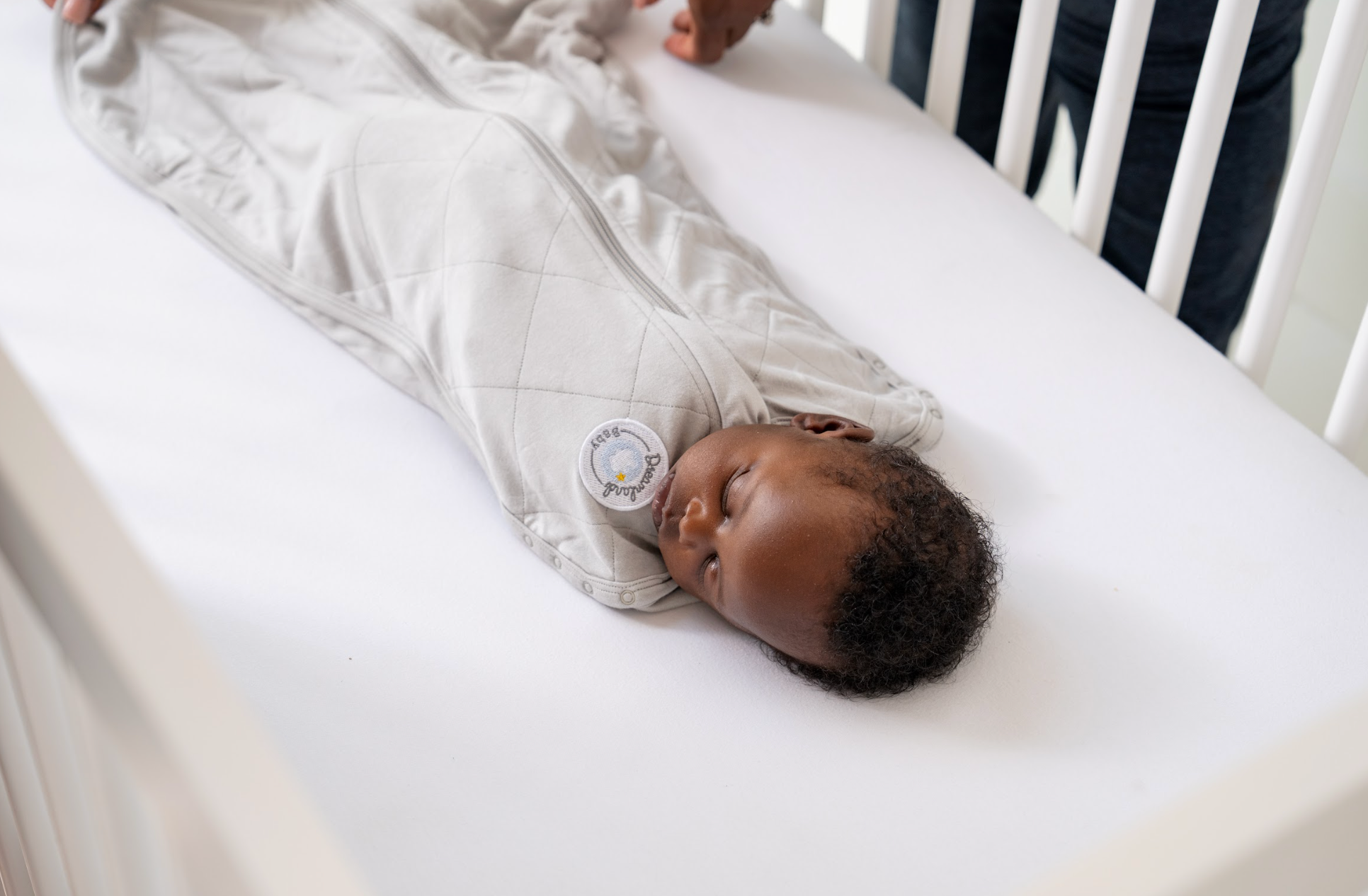Good sleep is absolutely essential for your baby’s physical and cognitive development, especially during those first few months. Newborns need an environment that mimics the womb’s sensations, sounds, and motions to feel secure and sleep soundly. This period is vital because your baby’s brain is developing rapidly, forming neural connections and enhancing sensory and motor skills. Newborns typically need around 14 to 17 hours of sleep each day to support this rapid development.
Here are five things to know about newborn sleep:
1) REM (rapid eye movement) sleep, which makes up about 50% of a newborn’s sleep, is particularly important. It helps process new information, form memories, and learn new skills. Research in Sleep Medicine Reviews underscores the importance of sleep for synaptic plasticity, which is fundamental for learning and memory. Plus, REM sleep supports emotional regulation and stress response, helping babies handle new experiences more effectively. So, ensuring your baby gets quality sleep during these early months is essential for their cognitive and emotional growth.
2) Moreover, deep sleep, which is the restful sleep, is key for physical growth. Deep sleep triggers the release of growth hormones necessary for developing muscles, bones, and tissues, and it strengthens the immune system, helping your baby fend off illnesses. Quality deep sleep also aids in cellular repair and overall physical recovery, which is essential as babies grow rapidly during this stage. These physical benefits are just as crucial for your baby’s overall development.
3) Understanding newborn sleep patterns can also help you provide better sleep for your baby. Newborns experience both light and deep sleep cycles. Light sleep is crucial for brain development, but many parents mistake the noises and movements during this stage as signs of waking. Babies often grunt, whimper, or make small cries during light sleep, leading parents to pick them up too prematurely. This can disrupt their sleep cycle, leaving the baby agitated and often unable to fall back asleep easily. Parents who aren’t aware of this and repeatedly pick up their baby prematurely between sleep cycles can inadvertently impact their development.
4) From my perspective as a postpartum doula, swaddling is a great practice for newborns aged two weeks to three months, before they start rolling over and once breastfeeding is established. Swaddling provides a sense of security by mimicking the womb, which helps calm the baby and reduce the startle reflex that can interrupt sleep. This can lead to longer, more restful sleep periods, supporting your baby’s overall development.
5) However, during the first two weeks, as breastfeeding is being established, skin-to-skin contact and contact naps with an awake parent are recommended. These practices strengthen the mother-baby breastfeeding relationship and help the mother learn the baby’s hunger cues. Swaddling with the hands down during this period can make it harder for the baby to show hunger cues and feed on demand, potentially causing breastfeeding issues. Once breastfeeding is well established, swaddling with the baby's arms down can be introduced to help with sleep.
Although this article focuses on a baby's sleep, it’s important to note that newborns need to be fed on demand or at least every 2-3 hours. Always check with your healthcare provider for advice specific to your baby’s needs based on age, weight, and any other considerations. This is not medical advice; please consult your medical provider for guidance tailored to your baby.
In conclusion, creating a safe, comforting sleep environment and understanding newborn sleep patterns and needs are key steps in promoting healthy development during these early months. Good sleep lays the foundation for both cognitive and physical growth, ensuring your baby thrives during this critical period.
Sources:
- Mindell, J. A., & Owens, J. A. (2015). **A Clinical Guide to Pediatric Sleep: Diagnosis and Management of Sleep Problems**. Philadelphia, PA: Lippincott Williams & Wilkins.
- National Sleep Foundation. (2023). [How Sleep Affects Your Baby's Brain Development](https://www.sleepfoundation.org/baby-sleep/how-sleep-affects-your-babys-brain-development)
- Graven, S. N. (2006). Sleep and brain development. Sleep Medicine Reviews, 10 (6), 459-474.
About the Author:
Cindy Lelea is a certified Postpartum Doula through DONA, International and a mother of five grown children. She absolutely loves helping families develop self-sufficiency skills to nurture and care for their infant. She is the owner of Welcome Baby Postpartum Care in Hawthorne, California.


Share:
Soothing a Teething Baby at Night: Our Best Methods
Postpartum Prep: 5 Simple Steps to Take Before Baby Arrives